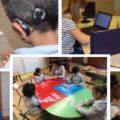
Workshop
“Strade Maestre”: When School Is Developed As A Journey – Interview with Niccolò Gori Sassoli
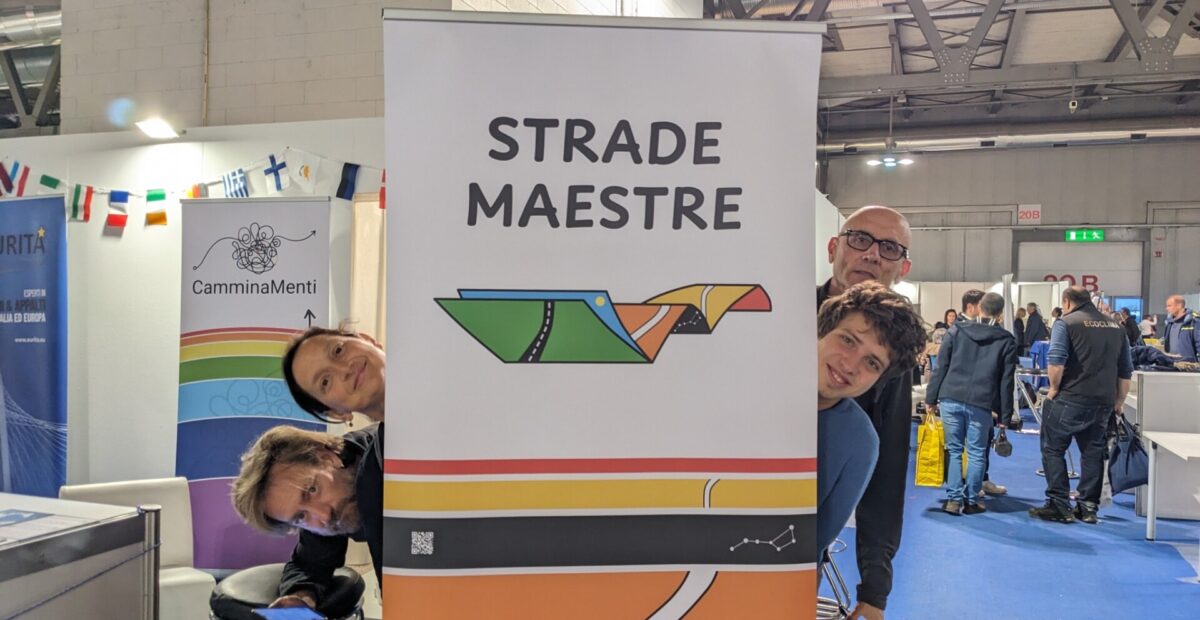
An Italian project which seeks to reinvent education: outdoor lessons, walks and experiential learning for teenagers walking across the country during a school year.
‘Strade maestre’ is a very interesting project in the making. It links school with walking, travelling, ecology, physical activity. For one year, a group of young people live a special school experience: outside the classroom and the lectures. Niccoló Gori Sassoli, one of the founders, tells us all about it.
How did the idea of the ‘Strade Maestre’ come about?
From the meeting, in 2021, of five people who work at the crossroads between the world of walking and the world of education, in the intersections between hiking and knowledge of the territory, environmental education and social innovation, teaching and mountain therapy, judicial walking, and avant-garde schools. In addition to me, who works in the field of association communication, there are Marcello Paolocci, Marco Saverio Loperfido (both environmental and hiking guides), Roberta Cortella (teacher and documentary filmmaker) and Emilio Ruffolo (psychotherapist).
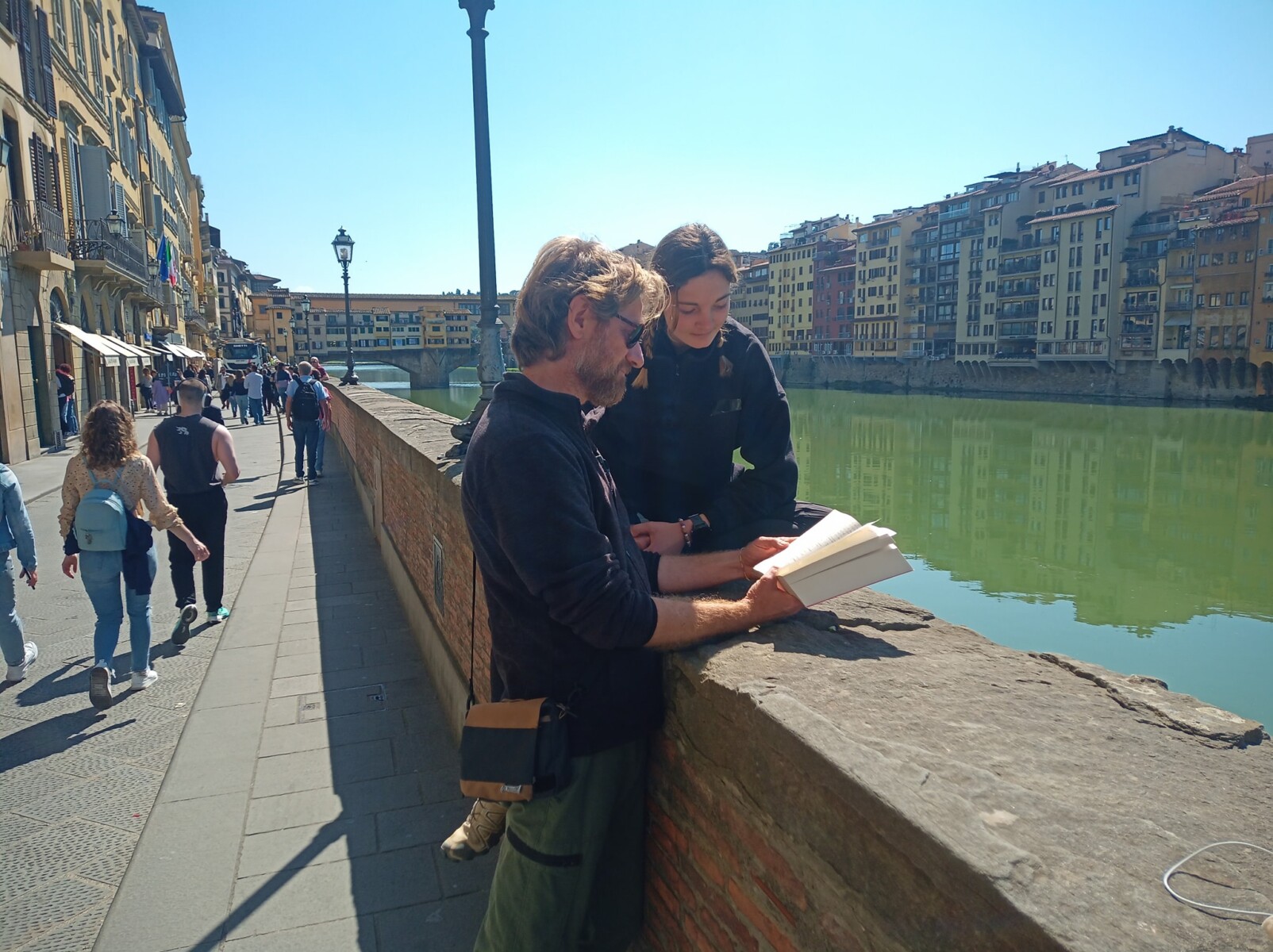
Roberta and Marco had worked together (the former as a director and the latter as a guide) in the docuseries Boez (2019, on Raiplay): three months along the Via Francigena for a rehabilitation walk dedicated to juvenile offenders.
Marco, with whom we are friends, and Marcello started wondering if such a project could be applied at an educational/school level. He contacted me while I was in France with his wife and daughters (aged 7 and 10 at the time) for a year-long school trip from Calabria to Andalusia.
How did you react?
With enthusiasm, and involving Emilio Ruffolo, a psychologist, expert in pedagogy and education, whom he met on that very trip, whose first stop was in Rende, Calabria, at the open-air school Castalia, which he founded with his wife.
Quintet completed. What happened next?
We created the ‘CamminaMenti’ social cooperative: the administrative and management tool to give substance to the idea. In September 2024, we set off on this adventure, for which I am in charge of communication, organisation and PR.
How did you choose the students?
With a kind of ‘word-of-mouth’ fed call. From online interviews with interested families, a group of eight youngsters was formed. For next year, we have received more than a hundred applications and count on forming two classes of around ten young people. We hope to find the financial resources so that the young people can leave regardless of their families’ financial circumstances. For the future, we hope that the experience will be replicated, even outside Italy.
How is this experience ecological?
Being ecological means understanding that humanity is not independent from the rest of nature. That we live in a complex system, an ecosystem to which we are bound by dynamic relationships of interdependence, requiring care, a balance between giving and receiving. For a long time, we stopped reminding ourselves of this. Now we are more aware of the consequences of this omission.
How important is the word ‘journey’ for Strade Maestre?
Walking reactivates our essence, makes us reflect on our intelligence, our feelings, our body and also our spiritual dimension. The concept of walking is central to the project, like being part of a group and seeking essentiality and depth combined with lightness. Going on a long journey makes us aware of what we really need: what we need to carry on our shoulders, how to manage our energies, our balances, getting to know ourselves better – legs, eyes, mind, heart, relationships – in relation to the world we encounter along the way.
And how does this relate to school?
Developing the school on the move allows you to break free from the patterns that school usually imposes: the frontal lesson in the confines of a room, the bells, the fragmentation between subjects. Travelling allows you to connect the notions acquired with the places you go through and your daily experience: from shopping for food to your relationship with your hosts. When travelling, history, geography, literature and science are understood in their interaction: in Pompeii one can talk about volcanology and Roman history. This year the students have been to Mount Etna and to Pirandello’s places in Sicily, to Dante’s places in Florence (here is the map of the first school year’s journey). Being in the world opens up continuous practical experience and work on autonomy and the group. It educates to reciprocity in a strongly individualistic time. To being part of an ecosystem in an integral, social, human sense.
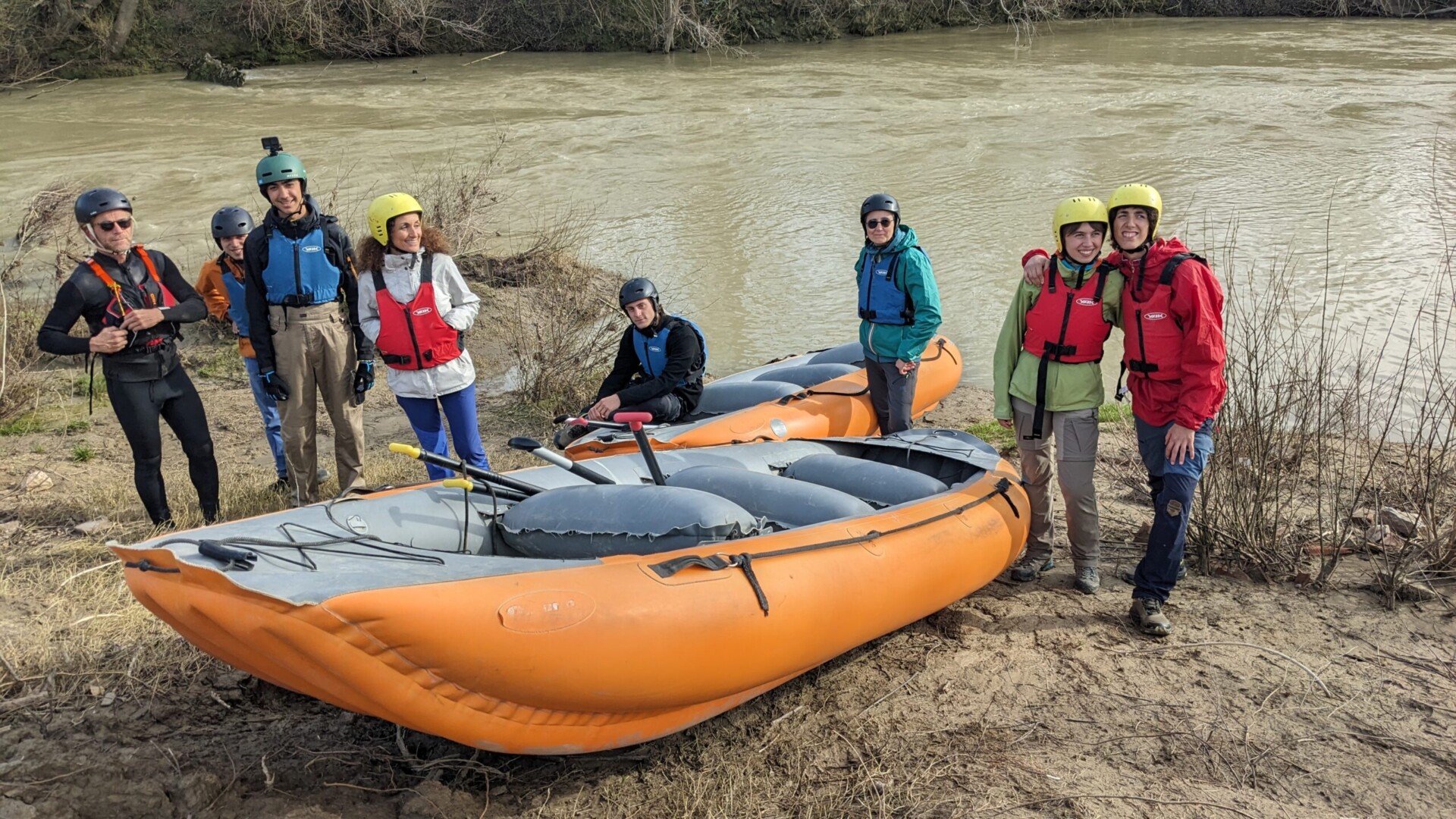
What is the relationship between nature and culture in your journey?
They’re not separated, as they are not separated in our daily life. Our culture originates from nature. Hence the work on interdisciplinarity, remembering that we are not masters of nature, but guardians and custodians.
Pope Francis’ Laudato Sì also reminds us of this.
We feel a closeness with the messages of Pope Francis and other spiritualities. And with science itself, which is realising the importance of certain interconnections. Walking encourages transcendence: inside a forest is easier than in a concrete box.
How are the teachers chosen?
In this first year, they are three of the five founders of the project. With the attention of the media and the world of education, we have had dozens of requests from teachers, educators, scouts: they want to start with us or organise meetings. In this first year we have already made several with these people, and in the future we would like to share these contacts in a generative way, perhaps by creating an open map. With the CamminaMenti cooperative, we are working to build a network of teachers, guides, educators, associations and places to stay that, at different levels, can make the Strade Maestre proposal grow. We are open to listening. On our website there is a section dedicated to people who would like to apply as guide-teachers. In just a few months, more than 150 people have contacted us. We are working with some of them to plan the next year of Strade Maestre and other educational projects on the way. Unfortunately, we cannot reply to everyone, as we are a small and young organisation. We hope that the networks we are part of will welcome this enthusiasm.
Seeking other fruitful relationships.
We are open to collaborations, we make our experience available in an open-source perspective. We cooperate with various educational agencies: foundations and associations active at national level such as CAI (Italian Alpine Club), AIGAE (Association of Environmental Hiking Guides) AGESCI (Association of Italian Catholic Guides and Scouts) INDIRE (National Institute for Documentation and Innovation in Educational Research Italian School, which is part of the Italian Ministry of Education).
What is the age of your students for the current and next year?
They are youngsters in the last three years of high school, aged between 16 and 18.
Is it equivalent to a normal school year for them?
In this sort of ‘year zero’ the children are in the state of parental education: their parents take over the responsibility of educating them and in fact delegate it to the cooperative. At the end of the year they will take a private exam with a programme agreed with their schools of origin. In the medium term we would like the year on the road to be equated with a year of schooling abroad. In the long term we hope that teachers working in the Italian public education system will also be able to ‘detach’ to do a year of service on the road, as happens for example with those working in prisons or hospitals.
Is it possible that during the journey, other meetings and places will be added to the planned ones?
Of course, the programme is a work in progress: we make contact with places and people and plan experiences and encounters to be made, but we are open to detours. The route alternates between days when we walk and change places every evening and residential periods. There is a canvas, a map with accommodations (from associations, parishes, schools, pro loco, municipalities) but it can happen that one night the group has to change plans. The same applies to teaching: in this period of approaching examinations, the guys are concentrating on studying in the classical sense, on books, as opposed to phases in which we had meetings almost every day on the territories we passed through.
How do the lessons take place?
Lessons in the main subjects take place face-to-face, with the teacher-guides accompanying the group on their way, each with their own field of teaching. Then there are guide-teachers of specific subjects, who act as tutors, mainly at a distance, on-line, since the participants follow different subjects: scientific high school, linguistic high school, artistic high school, humanities, agricultural institute.
It all sounds very interesting to me but also tiring.
It definitely is: living together for a long time in a small group, sometimes in spartan conditions, is not easy. But there is freedom for the young people and the guides to find their own space. If they wish, they can even suspend the trip for a few days and return home. It has happened, just as it has happened that their parents have come to visit them, or that we have passed by their homes. There is flexibility.
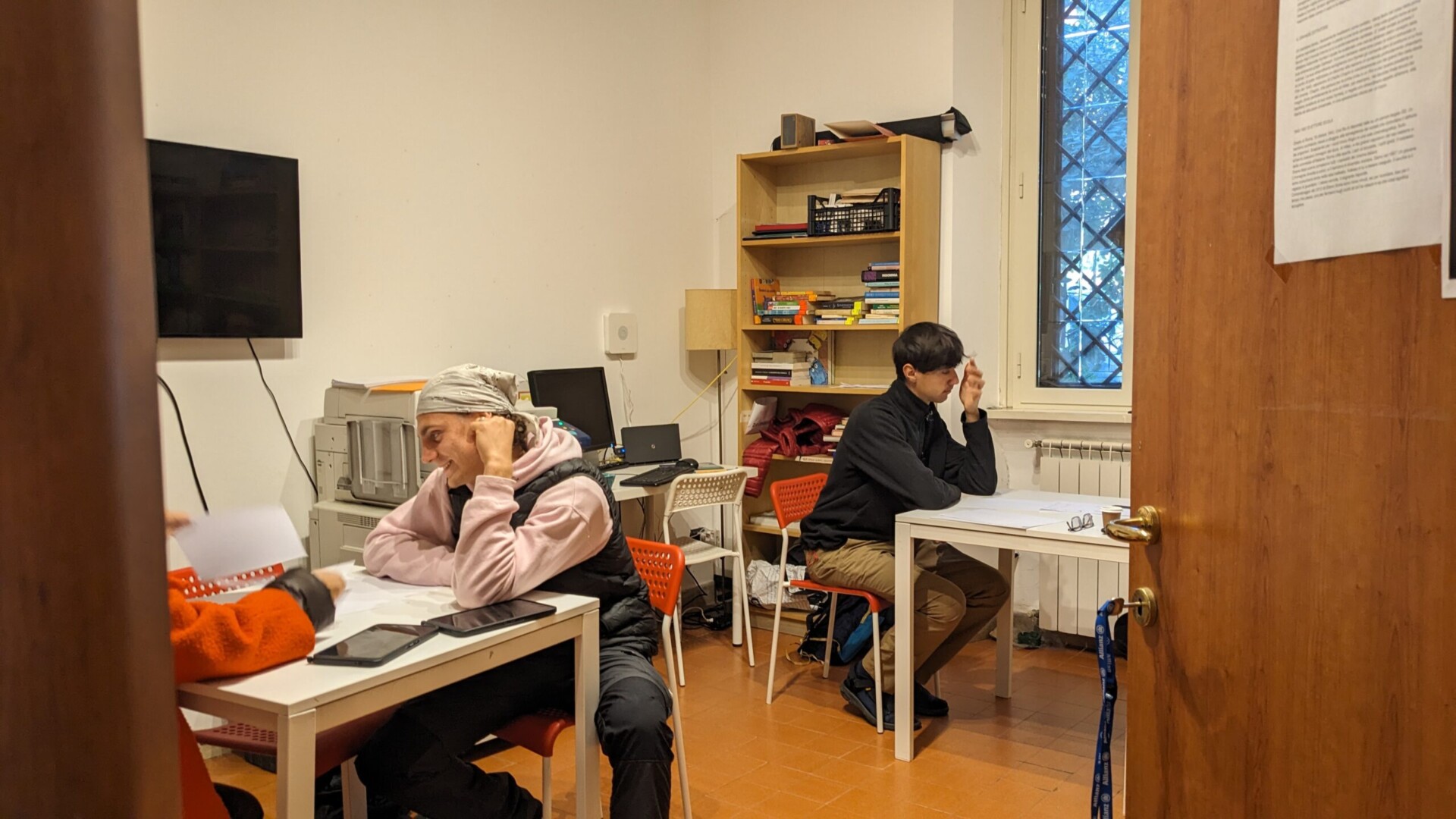
I read from your site: ‘No one educates anyone, no one educates oneself, people educate themselves together, with the mediation of the world’. Would you like to expand on this sentence?
It is a phrase from the pedagogue Paulo Freire. It means that we live in relationship with others, in the world. It is up to each one of us, through our own will and interactions, to find the way to educate ourselves. In the journey, the educational path concerns both young people and accompanying adults, they too have a great opportunity to grow, as well as the responsibility of guiding the younger ones.
According to you, which are the best lessons of this first year?
There are many, according to the walking group. I experienced some of them, being mainly involved in the organisation from afar and participating only sporadically in the journey. I would like to highlight the variety of the experiences lived and the richness of their contrasts: from the Caritas canteen in Matera to the nights at the Palazzo Caracciolo hotel in Naples, where the owner, having known about the project, invited the guys to stay. From refuges in the Apennines and guesthouses in small towns to the homes of friends and acquaintances in big cities.
‘Is ‘Strade Maestre’ a unique project or are there other similar ones within ‘CamminaMenti’,?
We are working on proposals for shorter walks, of three months, for young people who do not have to do school for a year but are oriented towards life, perhaps after graduation or in a period of uncertainty, in order to get to know themselves and the world from a new point of view, on foot, with a backpack.
